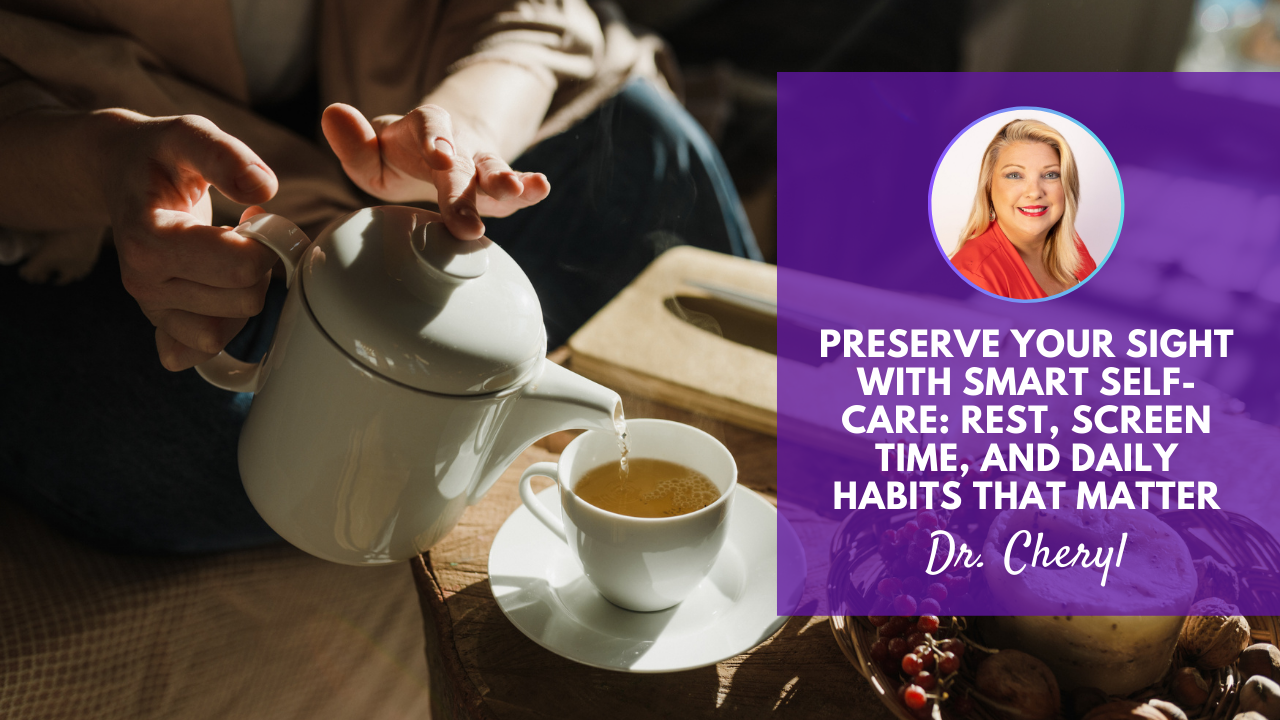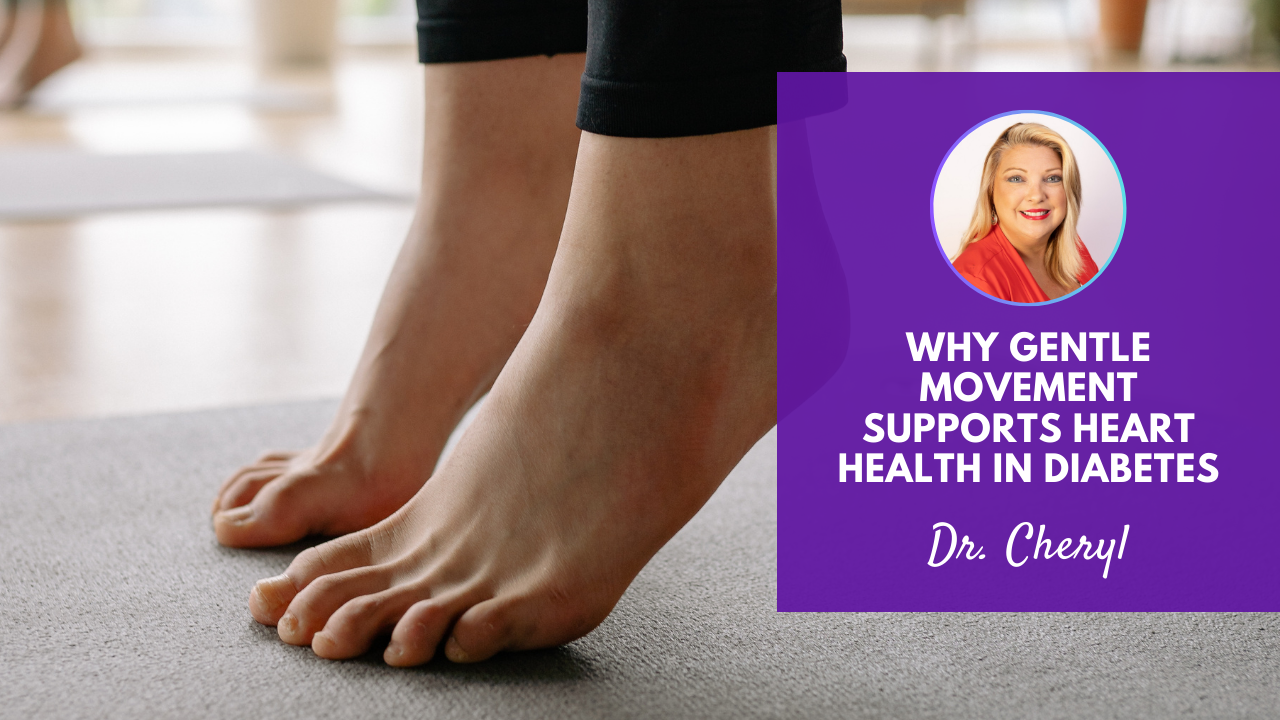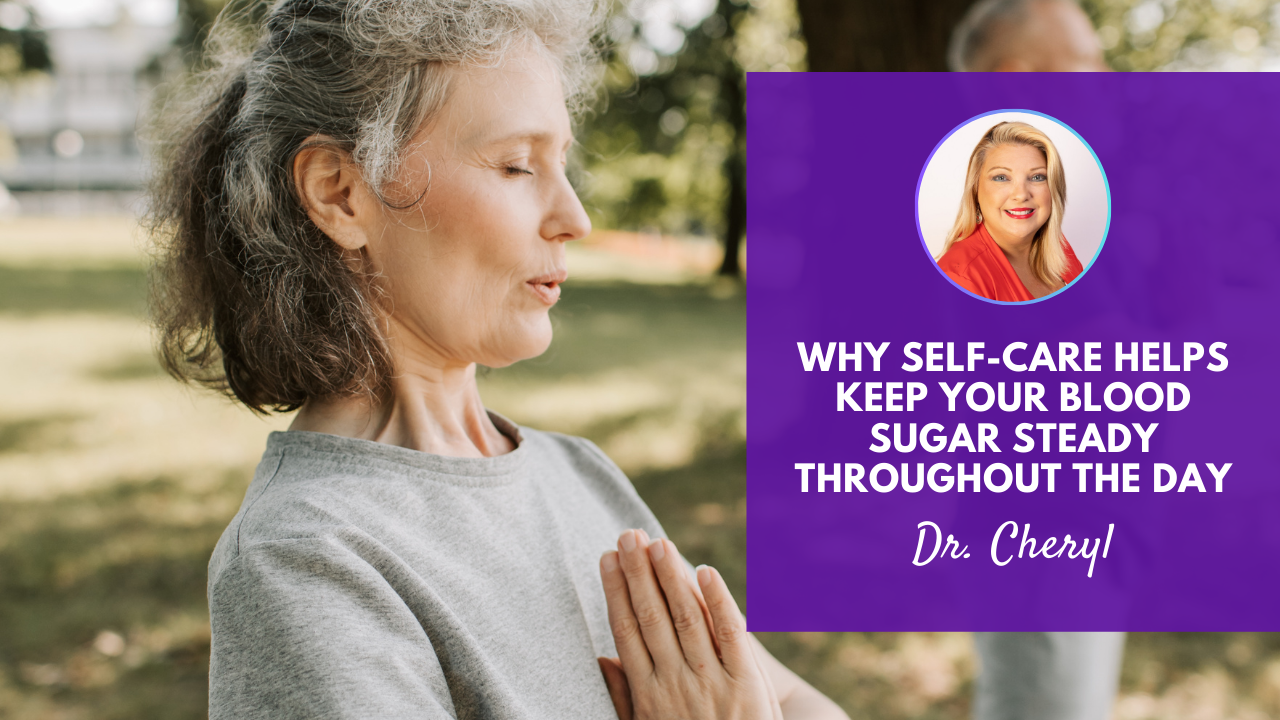
Preserve Your Sight with Smart Self-Care: Rest, Screen Time, and Daily Habits That Matter
Imagine missing the chance to clearly see the faces and moments you love most. For many people living with diabetes, vision changes don’t happen overnight. They often creep in slowly and silently until the damage is harder to undo. The encouraging news is that simple, daily self-care practices can protect your eyes and preserve your vision for years to come.
Your eyes are working constantly - from long hours on screens to adapting to shifting blood sugars to recovering from restless nights. All of this adds strain that builds over time. And while most people know blood sugar affects eye health, far fewer realize that hydration, sleep, stress, and even the lighting in your workspace play a powerful role in keeping your vision clear.
During Brain Wellness Month, it’s the perfect time to give attention to your eyes. In this article, you’ll learn the daily habits that support eye health, reduce strain, and help lower your risk of long-term complications.
Why Daily Habits Matter for Eye Health
Eye health isn’t only about blood sugar control. Hydration, restful sleep, screen exposure, and stress levels all directly affect your eyes.
When these areas are neglected, you may notice dryness, eye strain, or blurry vision. Left unchecked, these small issues can increase the risk of long-term complications.
The CDC notes that people with diabetes face a higher risk of diabetic retinopathy and other vision complications. Yet many of these problems can be delayed or even prevented through consistent self-care and early action.
Six Daily Habits That Support Healthy Eyes with Diabetes
1. Sleep and Eye Health with Diabetes
Aim for 7–9 hours of rest each night. Poor sleep disrupts blood sugar balance and raises inflammation, which can increase pressure on your eyes.
2. Screen Breaks to Prevent Eye Strain
Follow the 20-20-20 rule: every 20 minutes, look at something 20 feet away for 20 seconds. This simple reset encourages blinking, reduces dryness, and relieves strain.
3. Hydration for Clearer Vision
Even mild dehydration can make eyes feel dry and irritated. Drinking enough water supports the protective tear film that keeps your eyes comfortable and helps flush toxins from your system.
4. Blue Light and Screen Brightness
Use blue light filters or screen covers to reduce strain. Lower the brightness on your phone or tablet to about half instead of using full brightness. This helps prevent glare and eye fatigue.
5. Gentle Lighting for Eye Comfort
Avoid harsh overhead lights or bright screens in dark rooms. Choose softer, dimmable lamps or screen filters when working at night.
6. Mindful Moments for Relaxed Eyes
Stress tightens the muscles around your eyes and face. Close your eyes for 60 seconds or take a few deep breaths. These mindful pauses relax your vision and calm your nervous system.
Why Consistency Matter More Than Perfection
These habits aren’t complicated, but they do require consistency. Even adding one or two into your daily rhythm can make your eyes feel more comfortable and supported. The goal isn’t perfection. It’s steady care that preserves your vision long-term.
Reduce Tension with Thought Labeling
Sometimes stress builds without you realizing it. Thought labeling can help. By quickly naming what you’re experiencing - planning, worrying, remembering, imagining - you release tension and prevent the chain reaction that affects both your eyes and your blood sugar.
Learn more here: How Thought Labeling Can Reduce Stress and Improve Your Blood Sugar.
Frequently Asked Questions
How often should I see an eye specialist if I have diabetes?
Most experts recommend a comprehensive dilated eye exam at least once a year. If you already have signs of diabetic eye disease, your provider may suggest more frequent visits.
Does blue light from screens damage eyes with diabetes?
Blue light contributes to digital eye strain, which can cause dryness, headaches, and blurred vision. Filters, brightness adjustments, and regular breaks all help reduce its impact.
Does caffeine affect eye health?
In moderation, caffeine isn’t harmful for most people. Too much, however, may increase dehydration and contribute to eye dryness or discomfort.
Can drinking more water help with eye dryness and clarity?
Yes. Staying hydrated supports the tear film, reduces dryness, and helps keep your vision clear. Even mild dehydration can leave eyes feeling gritty or strained.
Ready to Protect Your Vision and Your Health?
As August comes to a close, it’s the perfect time to strengthen your self-care habits and carry them forward into the next season. Protecting your vision doesn’t require dramatic changes — just small, steady steps that make a big impact over time.
Your future deserves clear sight and steady health. Book your complimentary Diabetes Wellness Connection Call to share your goals, discuss your challenges, and discover the next steps that can help you feel calmer, clearer, and more in control.
A new theme begins Monday. Let’s finish this one with clarity, confidence, and care for both your eyes and your health.
ABOUT THE AUTHOR

Dr. Cheryl
Dr. Ac., C.H., RDH
Dr. Holistic Studies, Dr. Acupuncture
Diabetes Wellness Strategist & Coach
Creator & CEO of Holistic Diabetes Solutions
8 X International Best-Selling Author
As a woman living with diabetes for over 30 years, Dr. Cheryl understands the journey firsthand. When she was diagnosed, she received the same outdated advice her grandmother was given for over four decades, who relied primarily on medication, suffered from deteriorating health and eventually lost her life to diabetes. Fueled by this experience, Dr. Cheryl was compelled to seek a better way. Through countless research studies and trials, she developed the winning holistic approach: the Diabetes Success System which merges traditional wisdom with today’s best holistic self-care practices. It has revolutionized diabetes management by providing a trusted way to maintain consistent and predictable healthy blood sugar levels.
_______________________
PROFESSIONAL DISCLAIMER
The material and content contained in this platform is for overall general diabetes health and education information only. It is not intended to constitute medical advice or to be a substitution for professional medical recommendations, diagnosis or treatment. All specific medical questions or changes you make to your medication and/or lifestyle should be discussed and addressed with your primary healthcare provider. Having the right mindset, doing the right movements at the right times of day, and eating foods that help keep blood sugar, insulin, and inflammation manageable can dramatically reduce your risk of the all-too-common complications of Diabetes, increase your energy levels and have you feeling your best every day.






